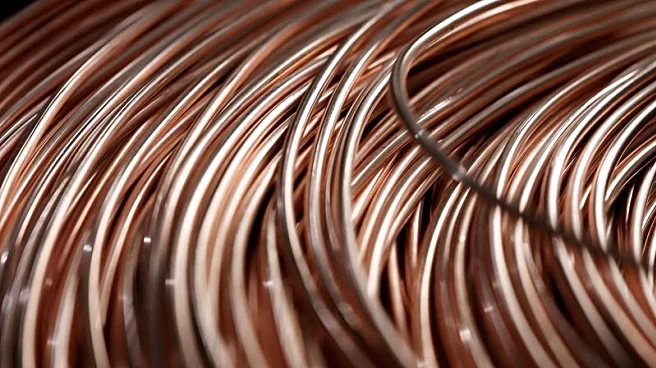BEIJING (Reuters) -China's state-backed non-ferrous metals industry association has advised setting a capacity cap for some metals, including copper, lead and zinc to curb the addition of new capacity as low
processing fees have hurt smelters' profitability, a state media outlet said on Thursday.
A more rapid expansion in supply than demand in China has left several sectors from coal, solar, to steel struggling with excessive supply that smashed industry profitability.
Beijing's pledge to curb price wars among producers in early July has triggered a wave of "anti-involution" campaigns across sectors plagued by overcapacity.
China is studying ways to strengthen regulation on the expansion of copper smelting capacity, a state news outlet said last month.
"There is an intense 'involution-style' competition in several sections of the nonferrous metals including smelting and refining, with aluminium an exception," Duan Shaofu, an official from the association was quoted by the state-run China Nonferrous Metals News as saying at a quarterly briefing.
China has put a capacity cap of 45 million metric tons for the aluminium sector from 2017, partly contributing to the bumper profits that producers of the light metal have made since then.
"The intense 'involution-style' competition has undercut companies' negotiation power in raw materials procurement, squeezing profits and threatening a sustainable industry development," said Duan.
Processing fees, or the treatment and refining charges, are a key revenue for copper, zinc and lead smelters.
These fees have come under pressure from fierce competition for scarce feedstocks amid rapid smelting capacity expansion.
Copper concentrate processing fees for example, have slumped to record lows, and China's top copper smelters refrained from setting guidance for such fees for the last quarter of 2025, the third such decision in a row.
(Reporting by Amy Lv and Lewis Jackson)











